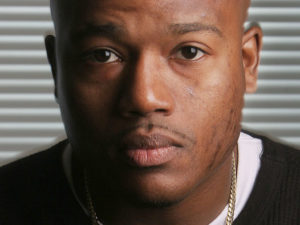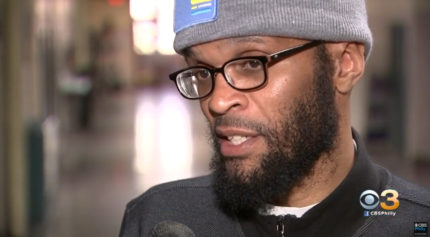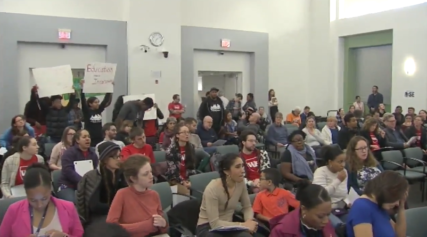Authorities still have no details about the death Michael Moses Ward, 41, known as Birdie Africa when he survived the 1985 MOVE bombing in Philadelphia. Ward was found dead last Friday in the hot tub aboard a Carnival Cruise Lines ship to the Caribbean.
Ward became a national symbol of the unconscionable actions of the Philadelphia police and fire departments, which ended a daylong armed confrontation with members of the radical MOVE group by dropping a bomb on the group’s fortified rowhouse in West Philadelphia.
The bomb sparked a blaze that killed 11 people, including five children, and destroyed 61 homes, leaving 250 people homeless, because city officials allowed the fire to burn.
Michael Ward, known in the group as Birdie Africa, was the only child to survive the bombing, which killed his mother, Rhonda Africa. Naked, with second and third-degree burns covering his body as he was carried away, 13-year-old Birdie Africa became an iconic symbol of the catastrophe on Osage Avenue.
The teen was left with lifelong scars on his abdomen, arms and face, and as the Philadelphia Inquirer described it, Philadelphia earned “the ignominious reputation as the city that had bombed its own people.”
Craig Engelson, an investigator for the Brevard County, Fla., Medical Examiner’s Office, said Ward was found unconscious in a hot tub on the Carnival Dream in what appeared to be an accidental drowning. A toxicology screening to confirm the cause of death will take about six weeks.
Andino Ward, Michael’s father, said yesterday that he and his son were vacationing with relatives.
“It was a family cruise,” Ward said. “It was my 30th wedding anniversary and his sister’s 10th anniversary, and her in-laws’ 50th anniversary. So all of the kids treated us to an anniversary cruise.”
Ward said his son had been living in the Pennsylvania suburbs, but he refused to name the town or describe his son’s most recent occupation. The father said the funeral will be private.
Ramona Africa, the spokesperson for MOVE, which is still in existence, said she was saddened to learn of Michael Ward’s death.
“We are just so sorry to hear about that,” she said. “The only thing I can say is that if he was still with MOVE and hadn’t been snatched from MOVE, he would not have drowned on no cruise ship. We don’t go on cruise ships. It just shows you how protective MOVE’s belief is. John Africa taught us that it is dangerous to be out in a body of water like that.”
After he was rescued and his mother was killed, Ward had no contact with MOVE, which he became a part of after his parents separated and his mother joined the group, moving into the compound at 6221 Osage. He went to live with his father and became Michael Moses Ward.
Ward told the Inquirer in 1995 about his life with MOVE—being forced to live on a diet of raw vegetables and fruit while the adults ate hearty cooked meals, of being denied schooling and neighborhood playmates, of stealing toys and burying them in the MOVE compound.
“I’m still afraid of them, of MOVE,” he said. “Some of the things that went on there I can’t get out of my head, bad things, things I haven’t told anybody except my father.
“But I’ll tell you this: I didn’t like being there. They said it was a family, but a family isn’t something where you are forced to stay when you don’t want to. And none of us wanted to stay, none of the kids. We were always planning ways to run away, but we were too little. We didn’t know how to get away. And we were scared.”
He told the newspaper that when his mother tried to leave MOVE, the leaders threatened her and him. So they lived in fear of everything: police, the neighborhood, MOVE founder John Africa, and anything else that came their way.
“The only regret I have is about me being hurt and my mom dying and the other kids,” he said. “I feel bad for the people who died, but I don’t have any anger toward anybody. See, I got out.”
Living with his father, Ward was able to have a semblance of a normal life, even eventually playing fullback and cornerback for the North Penn High School football team.
In 1991, Ward and his father reached a settlement with the city of Philadelphia, which paid them $840,000 up front, with each receiving $1,000 per month for life.
After high school, according to the Inquirer, Ward served in the Army from 1997 to 2001, earning the rank of sergeant, stationed in Florida, North Carolina and Germany, and serving as an Army cameraman and videographer making military training videos.
He later became a long-distance trucker, driving an 18-wheeler along the northeast corridor from Maine to Virginia, and also working as a barber in his spare time. Ward married and had a daughter and a son, but was divorced in 2005.
Ward said that despite his successes, his life had been difficult.
“The thing that helps me is I have a drive to better myself,” he said.
Asked by the Inquirer in 2005 what he saw himself doing in 10 years, he said, “Hopefully, I will be retired. I want to own my own business and watch my kids grow up. I want to retire when I’m 45.”


